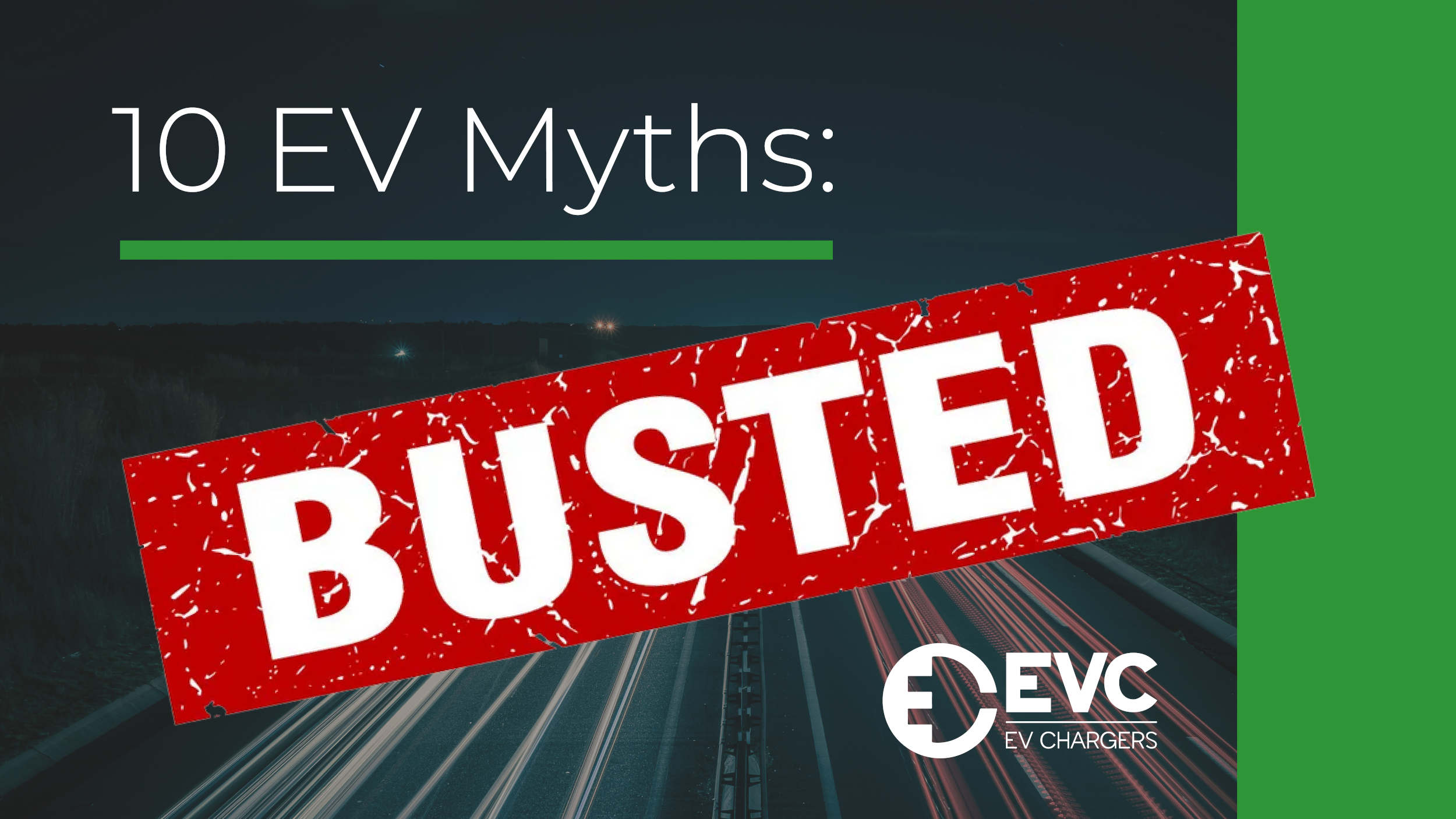10 EV Myths: Busted

The number of motorists making the switch to an electric vehicle has increased rapidly over the last few years, but not everyone is convinced. Often people associate downsides to EVs which aren’t necessarily true. In this blog, we will take a look at the 10 most common misconceptions when it comes to electric vehicles.
‘Electric vehicles are too expensive’
![]()
Whilst the initial outlay for an EV is higher than a petrol vehicle, you will find in many cases that they have a lower total cost over the span of 4 years. The main money saving comes from running costs, and according to a recent study, an EV can save £176 for every 1000 miles driven in comparison to ICE vehicles. Another benefit for is that electric vehicles are exempt from road tax. With the average annual road tax around £165 a year, this also makes for another nice saving. EVs are also becoming more affordable as we enter a thriving second-hand market which you can read more about here.
‘EVs do not have a big enough battery range’
![]()
Most drivers in England will not have an issue with battery range, as 99% of journeys made are under 100 miles. For motorists who are regularly driving further than this, there are now more options available with some battery ranges over 200+ miles, and 300+ mile vehicles are also becoming more common. These ranges will only increase as time goes on, with battery prices continuing to fall and technology advancing.
‘After 5 years the battery will need replacing’
![]()
There is no evidence suggesting EVs have a different lifespan compared to petrol or diesel cars. EVs are in daily use across the UK for many high mileage roles. EV batteries usually have warranties of around 100,000 miles or 8 years, they are also expected to last a lot longer than this.
‘The UK does not have enough charge points’
![]()
The UK has one of the largest charging networks in Europe right now, and statistics show that there are over 30,000 public charge points available, a major rise from 7,211 back in 2017. There are also over 5,800 rapid chargers on top of this figure. On average, 600 chargers are added to the network each month, a figure which will only continue to grow as demand increases. However, there is currently a geographical disparity with the UK’s charging network with Greater London and the South East accounting for 45% of all public EV chargers in the UK. So there are still necessary improvements to be made to ensure all EV drivers have an accessible place to charge.
‘Charging an EV takes way too long’
![]()
Most charging carried out by EV drivers will be done at home overnight, which means that users would wake up with a fully charged vehicle which negates charging time issues. For topping up on public networks, most chargers are situated in areas where you would expect to spend some time, such as your workplace, a gym, or even a golf course. For rapid charging, some new cars are able to charge up to 200 miles in around 20 minutes, meaning by the time you’ve enjoyed a coffee at a service station you will be able to continue on your journey.
‘People without driveways will not be able to easily charge their EV’
![]()
Whilst it is true that one third of the UK does not have access to a driveway, the public charging network is expanding to ensure there is a smooth transition to an electric motoring future. At EVC, we are increasing our network across destinations you will regularly visit, such as workplaces and shopping centres, meaning you will always have access to a charge point when needed.
‘Public charge points are unreliable and often broken’
![]()
When charge points are out of action, this can of course be very inconvenient and frustrating. However, EV drivers should expect a reliable public charging network wherever they drive in the UK. According to Zap-Map, over 90% of charge points are working at any given time. At EVC, we monitor our entire network 24/7 so if an issue is to arise, we are able to fix it remotely within minutes.
‘The grid is not big enough and will not cope if everybody switches to an EV’
![]()
The National Grid are confident that they can deal with the increased load, however a few changes are in place to ensure this. Smart charging will play an important part, as this technology allows EV charging to take place when the demand for electricity is lower, such as at night when there is less load on the grid. This has benefits for consumers too, as the EV user can pay less for their charge depending on if they have a night-time tariff.
‘In order to install charge points and lay more cables, the country will need to be dug up’
![]()
It is true that at some locations, larger groundworks must be undertaken depending on the available power at that site. However, a large proportion of installations can be run off the existing building supply which causes minimal disruption.
‘Building an EV generates more greenhouse gas emissions than it saves’
![]()
This viewpoint is often cited when challenging EVs in online media, however it has been continuously debunked in numerous well-respected studies.
In fact, a new BEV has just a third of the lifetime greenhouse gas emissions of an equivalent new petrol vehicle. This even includes battery production and disposal. EVs are getting progressively cleaner as electricity generation decarbonises.
If you were debating whether your next car should be electric, we hope that this article has at least put your mind at rest about the common misconceptions often associated with EVs.
